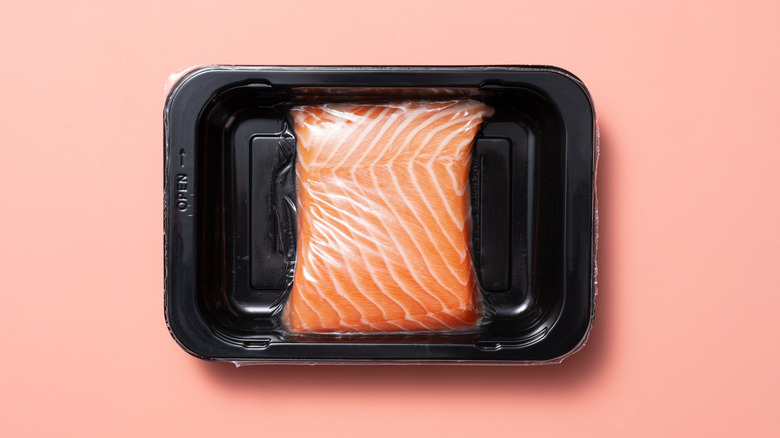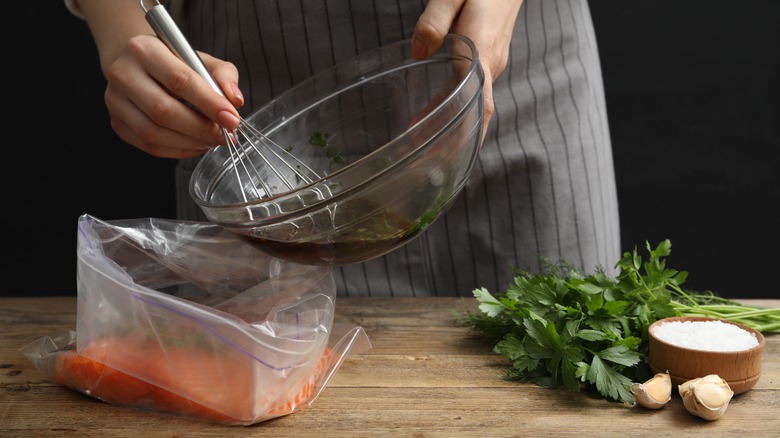There's No Need To Worry About That White Slime Coating Your Cooked Salmon
If you've ever cooked a piece of salmon, you might have noticed a filmy white slime sitting on your finished fish. Don't worry, your salmon is absolutely safe to eat (so long as you've cooked it fully). Albumin is the name of the white stuff and it's totally natural, albeit not terribly ideal from a visual perspective.
Albumin is a flavorless, moisture-rich protein that often collects on the surface of salmon as it cooks but which isn't visible until the protein is met with heat. This protein forms in all types of salmon (in humans, albumin is produced by the liver) and tends to show up more when you've overcooked your fish. The easy solution to ridding your fish of the unsightly protein is to just scrape it off with a napkin or knife after cooking and before serving. Showcasing what some people believe to be "nature's perfect fish" is even easier once you realize the albumin isn't all that hard to work against.
That being said, the truth is there's nothing wrong with eating the albumin residue. There's actually a lot of protein to be ingested with the white stuff on your salmon (much like with the edible salmon skin) so maybe consider not getting rid of it at all.
How to keep albumin from forming on your salmon
Even though albumin is flavorless and protein-rich, we understand that a meal begins the moment you lay eyes on the food so you may be hoping to keep the slime from forming in the first place. The most common method for keeping albumin slime from forming is by cooking the salmon slowly at a low heat. This little trick can do wonders for avoiding the white slime. Albumin is inside of the fish's flesh and pushed out by heat so, by cooking at a lower temperature, you can help keep the albumin safely inside the fish where it won't turn into slime.
Marinade is another trick you can use because the salt and moisture within the marinade helps provide a barrier for the salmon. Other chefs use a salt brine for similar reasons. Simply mix 1 tablespoon of salt for every 1 cup of water together and soak your salmon in it for at least 10 minutes before cooking it.

